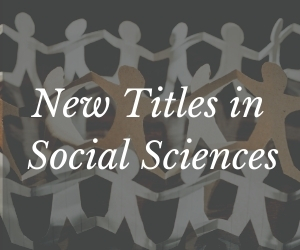Cookies Notification

Trump's Populist America
In Trump's Populist America, author Steven Rosefielde argues that the policies Trump fashions are not half measures, but stem from an understanding of his supporters and their desire for an elected government that is attuned to the common man's concerns. Through this lens, voting for Trump can be seen as an act of rebellion, in the spirit of Jeffersonian democracy, against the establishment. Despite assertions of xenophobia, bigotry, and racism, Rosefielde asserts that Trump supporters are nationalists in the Jeffersonian sense, who oppose being victimized by a special-interest government at home and who welcome amicable relations with neighbors across the globe.
The book documents the grievances ordinary middle and working class American people harbour against the establishment's Global Nation policies at home and abroad, and shows how Trump intends to rectify matters with policies aimed at building a Jeffersonian populist America in a workman-like manner. If Trump succeeds, these policies will reverse the course of 21st century history for the middle and working class Americans. A battle is shaping up between populist advocates of open societies, and those who are sure "father" knows best.
Sample Chapter(s)
Foreword (59 KB)
Introduction (258 KB)
Chapter 1: Establishment System (144 KB)
- Trump's Domestic Agenda:
- Establishment System
- Trump's Populism
- Immigration
- Protectionism and National Sovereignty
- Inclusive Economic Growth
- Education
- Environment
- Social Welfare
- Trump's Foreign Agenda:
- Populist Foreign Policy
- Russia
- China
- Islam
- Europe
- Tomorrow:
- Turning Point
- Prospects
FRONT MATTER
- Pages:i–xxiv
https://doi.org/10.1142/9781944659509_fmatter
The following sections are included:
- Dedication
- Contents
- Foreword
- Preface
- Acknowledgments
- Introduction
Part I Trump’s Domestic Agenda
Chapter 1: Establishment System
- Pages:3–9
https://doi.org/10.1142/9781944659509_0001
The target of Donald Trump’s populist ire is the establishment system of American political, economic and social governance. America’s founding principle in 1776 was democratic free enterprise (compassionate liberal democracy), but the 20th century witnessed a silent revolution starting with the adoption of the federal income tax in 1913 (16th constitutional amendment) that bloated the government and gradually imposed the preferences of elected officials and big business on the electorate and private households.
Chapter 2: Trump’s Populism
- Pages:11–17
https://doi.org/10.1142/9781944659509_0002
Establishment critics call Donald Trump a populist and accuse him of heresy, of being a “retro” conservative enemy of equal opportunity, affirmative action, entitlement, restorative justice, competition and free trade. His detractors view themselves as heirs of the French revolution (Declaration of the Rights of Man and state administrated progressive order) and treat Trump as a symbol of Thermidorian Reaction. The bipartisan establishment perceives itself as the enlightened fusion of economic liberalization and compassionate social justice, dismissing Trump as the demagogic voice of nativist nostalgia. The establishment claims to harmonize social justice with prosperity, and accuses Trump of standing for the restoration of white male privilege, social conservatism, and callous individualism. The establishment portrays itself as the champion of anti-racism, antimisogyny and anti-plutocracy, casting Trump as being insensitive to racial, religious, gender and economic inequality.
Chapter 3: Immigration
- Pages:19–31
https://doi.org/10.1142/9781944659509_0003
The establishment is incensed by Donald Trump’s sound bites on immigration. He is being assailed by Democrats as a “populist”, “nationalist”, racist and demagogue, and by free trade Republicans as an “anti-globalist”. He has fallen afoul of social justice advocates and free traders both of whom disregard the interests of the middle class. Are Trump’s critics right? Is US immigration policy wellconceived? Is it balanced in the national interest?
Chapter 4: Protectionism and National Sovereignty
- Pages:33–49
https://doi.org/10.1142/9781944659509_0004
The establishment is aghast at Donald Trump’s advocacy of protectionism and national sovereignty. Democratic and Republican advocates of America as the “global nation” and champions of the new world democratic free trade order have roundly condemned him. The establishment contends that nationalist policies designed to protect industries and workers from foreign competition are a discredited relic of a bygone age. Democrats and Republicans warn that tampering with the World Trade Organization (WTO), International Monetary Fund (IMF), World Bank (WB), The North American Free Trade Agreement (NAFTA) and Trans-Pacific Partnership (TPP) including the 45 percent tariff Trump has threatened to impose on Chinese imports will trigger a worldwide trade war that will harm everyone including Trump’s anti-establishment supporters.
Chapter 5: Inclusive Economic Growth
- Pages:51–69
https://doi.org/10.1142/9781944659509_0005
The following sections are included:
- If Horses Had Wings
- What Can Be Done?
- What Will Be Done?
- Is Trump a Closet Plutocrat?
- Endnotes
Chapter 6: Education
- Pages:71–80
https://doi.org/10.1142/9781944659509_0006
Education provides individuals and nations with tools for advancing their well-being. The concept includes the benefits of material consumption, but also takes account of moral, spiritual and intellectual excellence, as well as psychological factors like contentment and fulfillment. The contemporary understanding of well-being draws from Plato, Aristotle, Renaissance humanism, Freud’s notion of mental health and spiritual concepts like Enlightenment. To attain a high state of well-being, individuals must be trained to cope with life’s diverse challenges.
Chapter 7: Environment
- Pages:81–93
https://doi.org/10.1142/9781944659509_0007
America’s environmental policy provides a tool for dealing with the effects of external diseconomies. Private and public production sometimes pollutes other people’s property and the wider environment. Some types of consumption like nude bathing may distress fellow beach goers. Private and public production occasionally generates external economies. A road for private use may reduce congestion on public highways. Economists agree that it is difficult and in some instances impossible to eliminate all external diseconomies, and capture the potential benefits of external economies with market methods. There normally will be a place for markets in most environmental policy regimes, but a state presence also is indispensable. Governments use a variety of schemes to deter external diseconomies and capture external economies. They can create competitive market leasing rights for some public assets, regulate and enter into joint ventures with the private sector called public–private partnerships (PPP).
Chapter 8: Social Welfare
- Pages:95–109
https://doi.org/10.1142/9781944659509_0008
Contemporary populism in the United States feeds on the dissonance between societal dreams and reality. America’s dream from the nation’s founding until the Great Depression was based on the principles of democracy, freehold private property, civic rights, rule of law, equal opportunity, ambition and self-reliance. Its credo was that everyone could succeed, because American economic and social barriers were surmountable. Hard work, patience, prudence and frugality assured happy endings. People received what they earned, and reaped what they sowed. The virtuous prospered; the improvident had to bear the consequences because no one was entitled to anything beyond the value that they created, with the proviso that family and private charity would aid the needy.
Part II Trump’s Foreign Agenda
Chapter 9: Populist Foreign Policy
- Pages:113–121
https://doi.org/10.1142/9781944659509_0009
Donald Trump believes that the harm the establishment inflicts on ordinary Americans extends to foreign affairs. He contends that American foreign relations are anti-populist; that they serve the establishment’s globalist goal of building a new world order on principles that partly cede national sovereignty to foreign interests and transnational institutions. Trump wants to replace establishment globalism with a populist agenda that allows Washington to preserve America’s sovereignty intact, and build foreign relationships in America’s national interest on a case-by-case basis. For example, Trump has indicated that he may be prepared to support Taiwan’s national independence, even though recognition would set back efforts to sociopolitically transform and economically subordinate China in the manner the establishment desires. America’s interest as Trump sees it is incompatible with establishment globalism. It might once have been wise to prod the Baltic States into joining the North Atlantic Treaty Organization (NATO), but drawing Ukraine into the organization now in accordance with establishment doctrine entails unreasonable risks of nuclear war with Russia.
Chapter 10: Russia
- Pages:123–141
https://doi.org/10.1142/9781944659509_0010
The establishment’s post-Soviet policy toward Russia degenerated into an on-again, off-again low intensity Cold War II despite auspicious beginnings because American leaders refused to temper their geopolitical ambitions, assemble credible conventional military deterrents in the Baltics and Ukraine, and avert secular economic stagnation. The disintegration and collapse of the Soviet Union offered the establishment an opportunity to spread its global hegemony across the Soviet space, including the Kremlin’s East European, Central European and Balkan spheres of influence. The American Dream, both in its traditional and affirmative action guises had wide appeal, especially to liberal segments of communist Eurasia. Independence-minded elements of the Soviet Estonian, Latvian, Lithuanian, Ukrainian, Belarusian, Kazakhstan and Moldovan communist parties, and the communist parties of Poland, Hungary and the German Democratic Republic (GDR), as well as the broader electorate were attracted to the West’s prosperity, competitive markets, democracy and the rule of law.
Chapter 11: China
- Pages:143–159
https://doi.org/10.1142/9781944659509_0011
The establishment perceives Xi Jinping’s China as an emerging rival for globalist hegemonic power that must be tutored into accepting a subordinate role in the world order, but for the most part the conflict is barely perceptible on the radar screen. The Sino-American relationship is nettlesome, but not openly confrontational, oscillating across a broad spectrum from partnership to Cold Peace (skirmishing without threatening war). Both sides occasionally growl, but have steered clear of the low intensity on-again, off-again Cold War (belligerence without open military conflict) that now characterizes the relationship between Washington and Moscow.
Chapter 12: Islam
- Pages:161–188
https://doi.org/10.1142/9781944659509_0012
America’s first significant involvement with the Islamic world dates to the First Barbary War (1801–1805) long before the emergence of today’s establishment. During the ensuing 140 odd years, relations were minimal and might have remained so if World War II had not wrecked the West’s colonial system in the Muslim Middle East, Africa, India, Malaysia and Indonesia, and communism had been contained within Soviet borders after 1945. Neither happened. Muslim nations across the globe acquired national independence in the early post-war era, and communism spread to Eastern and Central Europe, the Baltic States, Balkans, the Middle East (Arab socialism), Iran, North Korea, China, Indochina, Malaysia and Indonesia.
Chapter 13: Europe
- Pages:189–195
https://doi.org/10.1142/9781944659509_0013
Russia, China and Islam all reject America’s globalist hegemonic ambitions. The establishment engages them to achieve its global nation notion of the American Dream. The transatlantic relationship between the US and Europe is fundamentally different. The establishment – until Trump’s election – partnered with Europe’s elites for a common hegemonic purpose. Each side within the transatlantic relationship had its own sub-agenda, and everyone bickered about obligations and spoils, but America and Europe were allies, and will remain so under Trump, despite a great deal of grumbling. They will not become enemies, or even frenemies, even though they are going to strongly disagree about how best to manage Russia, China, Islam, Israel, North Atlantic Treaty Organization (NATO), the Transatlantic Trade and Investment Partnership, the Paris Climate Agreement, populism and possibilities for further EU desertions.
Part III Tomorrow
Chapter 14: Turning Point
- Pages:199–202
https://doi.org/10.1142/9781944659509_0014
The establishment and Donald Trump offer America and the world a clear choice between yesterday and a brave new age. The alternatives are black and white across the boards both in domestic and foreign affairs. The traditional and global national versions of the American Dream are mutually exclusive. American populism and establishment globalism preclude one another. Establishment/populist agendas cannot be reconciled. Privilege for some is incompatible with equal opportunity for all.
Chapter 15: Prospects
- Pages:203–207
https://doi.org/10.1142/9781944659509_0015
The feasibility, broad contours and potential merits of Trump’s populist tomorrow are clear. Although American populism contests some establishment values, it is not deplorable and offers a legitimate democratic path forward, but some details require further consideration. Who are the likely winners and losers? Will America and the world be more tranquil, prosperous, and tolerant? Can America’s populist agenda be modified to accommodate positive aspects of the establishment vision? The answers to these questions are mildly reassuring. Trump’s curtailment of social transfers is unlikely to be catastrophic. His policies should increase net global well-being judged from a neutral perspective. Populism should be able to accommodate the legitimate needs of the disadvantaged and reduce national and global polarization.
BACK MATTER
- Pages:209–230
https://doi.org/10.1142/9781944659509_bmatter
The following sections are included:
- Conclusion
- Bibliography
- Index
- About the Author

Steven Rosefielde received an AM degree in Soviet Regional Studies (1967) and PhD in Economics from Harvard University (1972). His special areas were Soviet economy and comparative systems theory including Asian economic systems, labor managed firms and international trade. He was trained by Abram Bergson, working as well with Wassily Leontief, Alexander Gerschenkron, Simon Kuznets, Gottfried von Haberler and Evsei Domar. He is Professor of Economics at the University of North Carolina at Chapel Hill, and has served simultaneously as Adjunct Professor at various universities including the US Naval Postgraduate School, Monterey. He has taught widely across the globe in Russia, Japan, China, and Thailand, and has been a visiting research scholar at the Stockholm School of Economics, Bank of Finland, Trento University, Central Economics and Mathematics Institute (Moscow). During the Soviet era, he was an advisor to the Office of the American Secretary of Defense and FOI (Swedish Defense Institute), also serving as Coordinator of the US–USSR Joint Cooperative Research Program on Science and Technology (between the National Science Foundation and the Soviet Academy of Sciences), Topic 1, subtopic 3, "enterprise modeling," 1977–1981. In 1997, he was inducted into the Russian Academy of Natural Sciences [Rossiiskaia Akademiia Estestvennykh Nauk (RAEN)]. After the Soviet Union collapsed, he refocused his attention on Asia and the European Union while remaining actively engaged with Russia and Eastern Europe. Throughout his career he has striven to integrate the lessons learned in high level government service with advanced economic theory.
Professor Rosefielde is a prolific author and his latest publications include four books co-authored with Professor Daniel Quinn Mills from the Harvard Business School: The Trump Phenomenon and the Future of US Foreign Policy (World Scientific); Democracy and Its Elected Enemies: American Political Capture and Economic Decline (Cambridge University Press); Masters of Illusion: American Leadership in the Media Age (Cambridge University Press); Global Economic Turmoil and Public Good (World Scientific). He is also single author for the books: Comparative Economic Systems: Culture, Wealth, and Power in the 21st Century (Wiley-Blackwell); The Kremlin Strikes Back: Russia and the West After Crimea's Annexation (Cambridge University Press); The Russian Economy: From Lenin to Putin (Wiley-Blackwell), Red Holocaust (Routledge); Asian Economic Systems (World Scientific Publishers).
Sample Chapter(s)
Foreword (59 KB)
Introduction (258 KB)
Chapter 1: Establishment System (144 KB)























